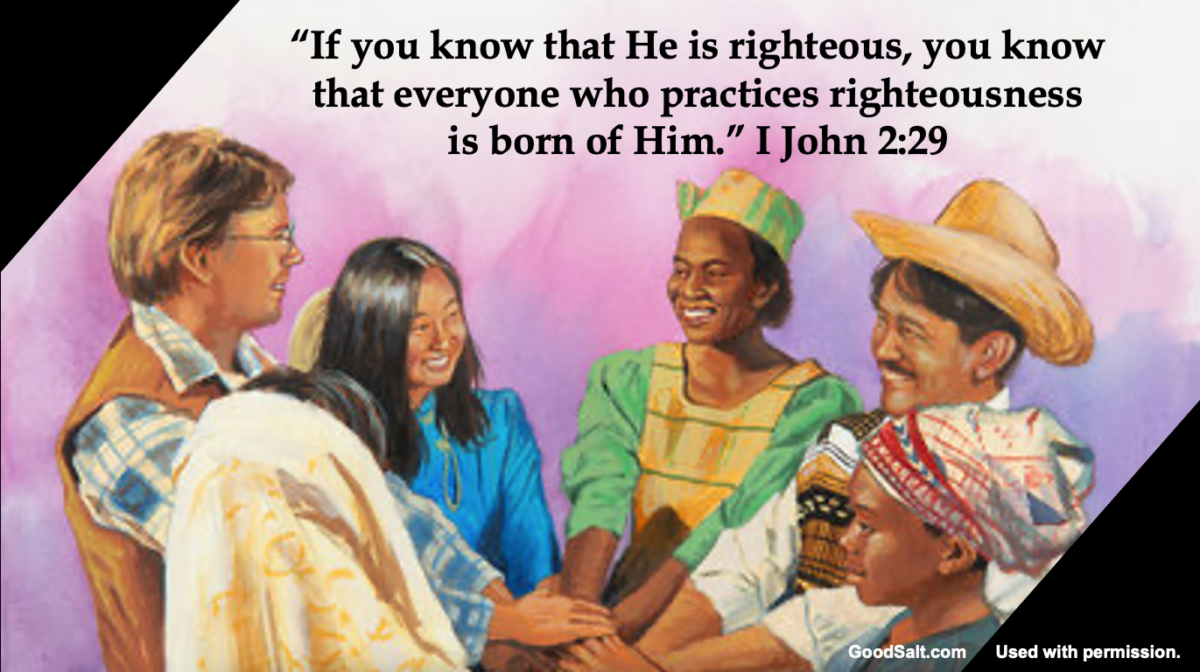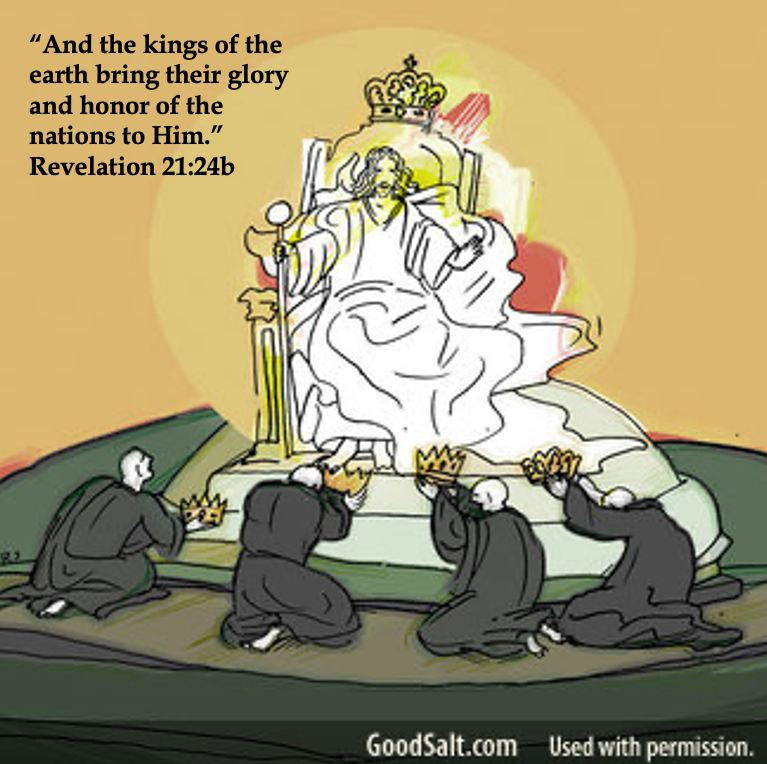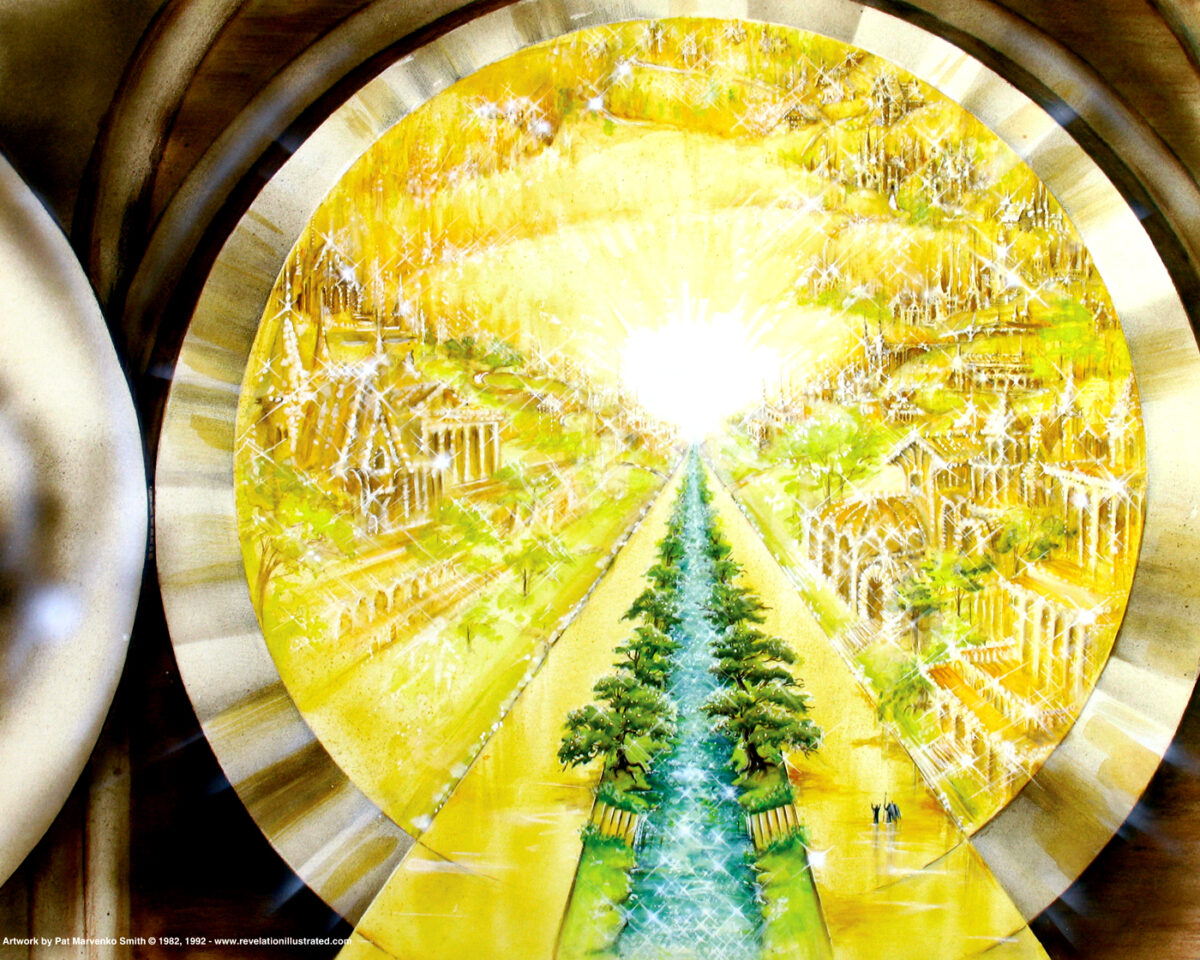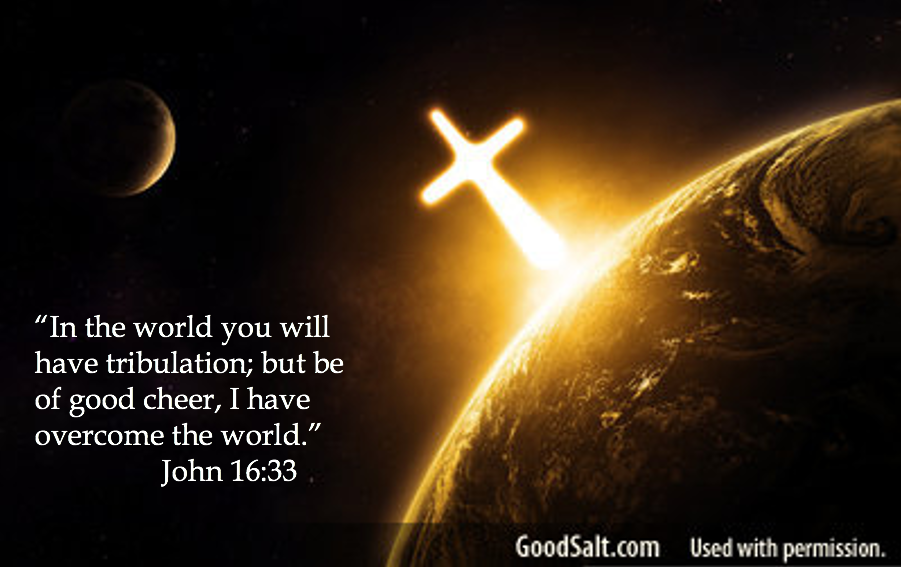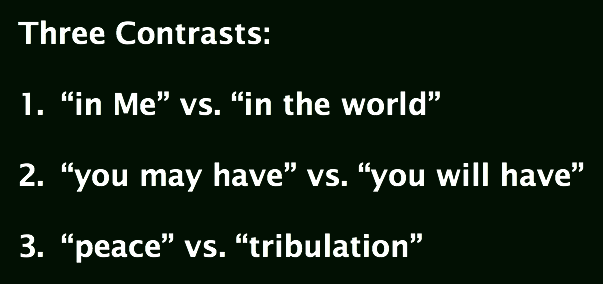“If you know that He is righteous, you know that everyone who practices righteousness is born of Him.” I John 2:29
During the first quarter of the Monday night NFL game on January 2, 2023, between the Cincinnati Bengals and the Buffalo Bills, twenty-four-year-old Damar Hamlin of the Bills made a tackle and hopped up to his feet only to collapse to the ground a second later. Immediately, Bills’ assistant athletic trainer, Denny Kellington, jumped to action after Hamlin’s heart stopped beating and began administering CPR on the football field while players from both teams formed a wall around Damar. Eventually Hamlin’s heartbeat was restored after a defibrillator was used on him on the field.
Physicians at the University of Cincinnati Medical Center where Damar was taken after his collapse Monday night, stated on January 6th that his “breathing tube was removed overnight” and that “he continues to progress remarkably in his recovery. His neurologic function remains intact, and he has been able to talk to his family and care team.” 1
At a recent press conference Bills head coach, Sean McDermott, said, “For an assistant to find himself at that position and needing to take the action that he did and step up and take charge like he did … is nothing short of amazing… The courage that that took … talk about a real leader, a real hero, in saving Damar’s life, and I just admire his strength.” 2
McDermott also praised the Bills entire medical team for their quick response. “Our medical team, they go through mock exercises for things like this, but we are never around to see that when they do that,” he said. “As they say, practice pays off, and it did in this case.” 3
Kellington’s quick response is truly amazing. One of the doctors treating Hamlin at the University of Cincinnati Medical Center, Dr. William Knight IV, states, “There are injuries occasionally that happen on sports fields, be it in football or others, but it is incredibly rare to have something be this serious (and) that quickly recognized. Meeting the standard of what we would expect in that scenario is what has allowed us to be able to discuss these good outcomes today.” 4
Another of Hamlin’s doctors, Dr. Timothy Pritt, also said, “had Hamlin’s care on the field been delayed by minutes or even seconds, his prognosis could’ve been quite different.” 5
Praise for Kellington’s life-saving actions has been overflowing on social media. Several fans are calling for him to be formally honored by the NFL. 6
Denny Kellington manifested that he was a hero through his actions. He, along with the Bills’ entire medical team, had practiced mock exercises for scenarios like Hamlin’s but it was Kellington who experienced this training at a much deeper level when he stepped up in the time of crisis. No doubt, the Bills have many athletic trainers on their team with impressive credentials, abilities, and knowledge regarding medical emergencies like Hamlin’s, but it was this specific trainer who manifested heroic character through his quick decisions and actions.
Why do I draw attention to this? Because I believe the author of I John would appreciate such a perspective. In our study of the book of I John, the apostle John introduced a new theme of having “confidence” or boldness before the Lord Jesus “at His coming” to motivate his Christian readers (2:12-14; 5:13) to continue to cultivate fellowship or intimacy with Christ (2:28). He uses one of his favorite terms for fellowship with God (“abide”) in verse 28 to emphasize the importance of cultivating intimacy with Christ in preparation for His return. Starting with verse 29, John begins to tell us how to prepare to have boldness at the prospect of Christ’s coming at any time (2:29-4:19). More specifically, in I John 2:29-3:10, John wants to talk about how to manifest with our actions that we are children of God. 7
John writes, “If you know that He is righteous, you know that everyone who practices righteousness is born of Him.” (I John 2:29). Some students of the Bible conclude that John is saying a true Christian will always practice righteousness. But let’s be clear. John does not say this.
“We must not make this verse say more than it does. John certainly does not say, ‘Whoever does not do righteousness is not born of Him.’ That would be an inference in no way justified by John’s statement. He is not talking here about how we can decide if a person is saved. If we know that a person believes (cf. 1 John 5:1 …), we can know he is saved. But here, John is clearly concerned with the deduction which we can make if we know that God is righteous. If that is known, it follows that one who to any extent reproduces His righteous nature is actually manifesting that nature and can rightly be perceived as born of Him.” 8
“This verse does not say that everyone who is born of God practices righteousness. Believers can walk in darkness and sin (1:6, 8; 2:1). The point here is that when a child exhibits the nature of his or her father, he or she is perceived as the child of the father.” 9
John first says, “If you know that He is righteous” (Ean eidēte hoti dikaios estin). This is a third-class condition in the Greek language which conveys probability. 10 The first Greek word translated “know” (eidēte) in this verse refers to intuitive or absolute knowledge. 11 The second word translated “know” (ginōskete) refers to experiential knowledge. 12 Hence, John is saying, “If you know intuitively or absolutely from the Scripture that Christ is righteous, and you probably do, then you know from experience that everyone who practices or does righteousness is born of Him.”
The only way children of God can be manifested is through Christ’s “righteous” behavior. When we see someone exhibit Christ’s righteous behavior, we can be sure they are born of God. This righteous behavior is not referring to humanistic kindness or morality which even non-Christians can manifest. This “righteousness” (“what is right” translates tēn dikaiosynēn) 13 is not possible apart from believing in Christ for new birth and loving one’s fellow Christians. 14 John writes, “And this is His commandment: that we should believe on the name of His Son Jesus Christ and love one another, as He gave us commandment.” (I John 3:23).
“John is not talking about how one can decide if a person is regenerate. John is clearly concerned with the deduction one can make if a person knows that God is righteous. If that is known, it follows that one who reproduces His righteous nature is actually manifesting that nature and can rightly be perceived as born of Him.” 15
Does I John 2:29 mean that all children of God will manifest Christ’s righteous behavior or that all people manifesting Christ’s righteous behavior are children of God? Perhaps it would be helpful to illustrate using the NFL motif. Since our opening illustration involved a Buffalo Bills football player, let’s talk about Buffalo Bills football fans. Are all football fans Buffalo Bills fans? No. But are all Buffalo Bills fans football fans? Yes. Hence, are all Christians practicing Christ’s righteousness? No. But are all those practicing Christ’s righteousness Christians? Yes.
First John 2:29 does not say, “Everyone who does not practice righteousness is not born of Him.” John has already stated that Christians can walk in darkness and sin (1:6, 8, 10-2:1). John’s emphasis here is that when a child manifests the righteous nature of his or her father, he or she is perceived as a child of the father.
Getting back to the Damar Hamlin story involving the athletic trainer. I think we can safely assume that all the athletic trainers for the Buffalo Bills had a thorough knowledge of how to treat a player in Hamlin’s situation. But Denny Kellington manifested or experienced that knowledge when he sprang into action and helped save Damar’s life. The other trainers were still trainers even though they did not share Kellington’s experience. But Kellington manifested his trainer’s knowledge through his actions. And he has become a hero in the eyes of many people.
Not all Christians manifest Christ’s righteous behavior to the same degree. Practicing Christ’s righteousness is not automatic for Christians. We must choose to abide in Christ, to walk in the light as He is in the light to manifest His righteous behavior (1:5-2:6, 28). Those believers in Jesus who do will have more confidence and less shame when they stand before the Lord Jesus at His Judgment Seat (I Cor. 3:8-15; 2 Cor. 5:10; I John 2:28; 4:17-19). It is there they will hear Jesus say to them, “Well done, good and faithful servant; you were faithful over a few things, I will make you ruler over many things. Enter into the joy of your lord.” (Matt. 25:21).
But those believers who do not manifest Jesus’ righteous behavior in their Christian lives “will be saved, yet so as through fire” at the Judgment Seat of Christ where they “will suffer [the] loss” of eternal rewards (I Cor. 3:15). They will hear Jesus say, “’26 You wicked and lazy servant, you knew that I reap where I have not sown, and gather where I have not scattered seed… 28 So take the talent from him, and give it to him who has ten talents. 29 ‘For to everyone who has, more will be given, and he will have abundance; but from him who does not have, even what he has will be taken away. 30 And cast the unprofitable servant into the outer darkness. There will be weeping and gnashing of teeth.” (Matt. 25:26, 28-30).
Notice the contrast of rewards between the faithful believer and the unfaithful believer in Matthew 25:14-30:
| Faithful Believer’s Rewards | Unfaithful Believer’s Loss of Rewards |
| Commendation – “Well done, good and faithful servant.” Matt. 25:21a | Reprimanded – “You wicked and lazy servant, you knew that I reap where I have not sown, and gather where I have not scattered seed.” Matt. 25:26 |
| Promotion – “you were faithful over a few things, I will make you ruler over many things.” Matt. 25:21b | Demotion – “So take the talent from him, and give it to him who has ten talents… but from him who does not have, even what he has will be taken away.” Matt. 25:28-29 |
| Included in the joy of co-ruling with Christ – “Enter into the joy of your lord.” Matt. 25:21c | Excluded from the joy of co-ruling with Christ – “And cast the unprofitable servant into the outer darkness. There will be weeping and gnashing of teeth.” Matt. 25:30 |
In a manner of speaking, faithful Christians will be perceived as heroes because they manifested the righteous character of God their Father and God the Son through their actions on earth. These overcoming believers will receive special recognition throughout eternity when they enter the main gates of the New Jerusalem on the new earth (Rev. 22:14b). Each time they enter one of the main gates of the New Jerusalem, they will be given special honor perhaps before the angel at that gate (Rev. 21:12).
Jesus promised, “Also I say to you, whoever confesses Me before men, him the Son of Man also will confess before the angels of God.” (Luke 12:8). It may be when an overcoming believer who faithfully “confessed” Christ “before men” especially in hostile contexts (Luke 12:1-12; cf. Matt. 10:16-42) during his Christian life on earth, enters one of the main gates into the New Jerusalem in the life to come, the Lord Jesus will give a good confession (special recognition) about that believer to the angel of God at that gate. Jesus wants us to know that if we testify of Him in the face of hostile persecution during our Christian lives on earth, He will testify about us before the angels of God and God the Father in the life to come on the new earth (Luke 12:8; Matt. 10:32).
This confession by Christ may include the declaration that this faithful believer is fit to rule with Him because he or she endured opposition when speaking up for Christ throughout their entire Christian lives (cf. 2 Tim. 2:12; Matt. 10:16-32). 16 Believers on the inside of the city at that gate will stop what they are doing to welcome this overcomer into the city. Since overcomers will rule with Christ in His eternal kingdom (Rev. 2:25-27; 3:21), they will be honored as royalty each time they enter the New Jerusalem.
Those believers who do not faithfully confess Christ before hostile people in this life will still be on the new earth because the only condition for that is to believe in Christ for His gift of eternal life apart from any works, including confessing Him before men (cf. John 3:5-16; Ephes. 2:8-9; Rev. 21:27b). However, Jesus will “deny” giving them a good confession before God the Father and the angels of God because they refused to testify of Him in the face of opposition during their Christian lives on earth (Luke 12:9; Matt. 10:33). Hence, they will still be on the new earth, but they will not have the honor and privilege of entering through one of the main gates into the New Jerusalem. Christ has informed us now of this reward to motivate us to speak up for Him even though the cost may include losing our lives for Him.
Prayer: Gracious Father in heaven, we thank You for the gift of eternal life that we received the moment we believed in Your only begotten Son, Jesus Christ. It was our faith in Christ that resulted in being born into Your forever family. We praise You today for explaining how we can prepare to have more confidence and less shame before the Lord Jesus when He returns for His church. Please help us manifest Your righteous nature through our actions – especially loving one another – so others can perceive we are Your children, and You are our Father. In the matchless name of the Lord Jesus Christ, we pray. Amen.
ENDNOTES:
1. Lindsay Lowe’s January 6, 2023, article originally published on Today.com entitled, “Fans want the trainer who saved Damar Hamlin’s life with CPR in the Football Hall of Fame” at www.news.yahoo.com.
2. Ibid.
3. Ibid.
4. Ibid.
5. Ibid.
6. Ibid.
7. Zane C. Hodges, The Bible Knowledge Commentary Epistles and Prophecy, Editors John F. Walvoord and Roy B. Zuck (David C. Cook, 2018 Kindle Edition), Kindle Location 3767 to 3775.
8. Tom Constable, Dr. Constable’s Notes on I John, 2022 edition, pp. 67-68 cites Zane C. Hodges, The Epistles of John: Walking in the Light of God’s Love (Irving, Tex.: Grace Evangelical Society, 1999), pg. 127.
9. Constable, pg. 68 cites The Nelson Study Bible, Edited by Earl D. Radmacher (Nashville: Thomas Nelson Publishers, 1997), pg. 2144.
10. Archibald Thomas Robertson, A. T. Robertson’s Word Pictures in the New Testament [with Bible and Strong’s Numbers Added!], 6 Volumes (E4 Group, 2014 Kindle Edition), Kindle Location 205650.
11. Ibid.
12. Ibid., Kindle Location 205650 to 205667.
13. Hodges, The Bible Knowledge Commentary Epistles and Prophecy, Kindle Location 3771.
14. Zane C. Hodges, Robert Wilkin; J. Bond; Gary Derickson; Brad Doskocil; Dwight Hunt; Shawn Leach; The Grace New Testament Commentary: Revised Edition (Grace Evangelical Society, Kindle Edition, 2019), pg. 594.
15. Ibid.
16. Hal Haller, Jr., Robert Wilkin; J. Bond; Gary Derickson; Brad Doskocil; Zane Hodges; Dwight Hunt; Shawn Leach; The Grace New Testament Commentary: Revised Edition (Grace Evangelical Society, Kindle Edition, 2019), pg. 58.

